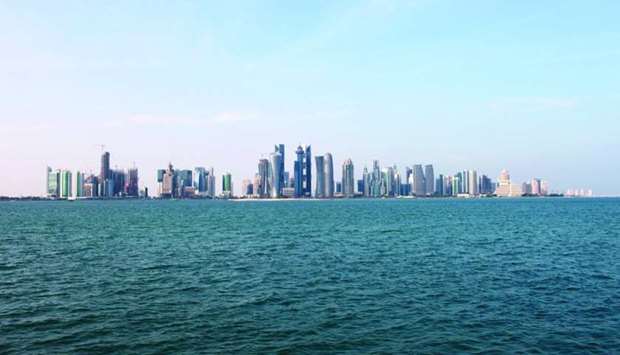Qatar still has a “solid line-up” of infrastructure and hospitality projects to prepare itself for the large influx of visitors in 2022, although the tournament’s flagship projects, such as the stadia, are nearing completion, Oxford Business Group (OBG) has said in a report.
Despite some concerns for Qatar’s construction industry surrounding a “narrowing pipeline” for 2022 FIFA World Cup-related projects and a more general global economic slowdown, there is much reason for optimism within the sector in the years ahead.
Qatar’s 2020 budget demonstrates that there will be plenty of investment opportunities going forward, especially regarding infrastructure projects, OBG noted in its ‘The Report: Qatar 2020’.
Following a slight rallying in energy prices in early 2019, Qatar increased spending in its 2020 budget by 1.9% from QR206.6bn in 2019 to QR210.5bn in 2020, the highest expenditure has been since 2015.
Revenues, however, are expected to remain stable, at QR211bn. This was based on an estimated average oil price of $55 per barrel for 2020, the same as the previous year, though $10 higher than 2018.
Beyond the 2020 budget, the country’s project pipeline has more than 1000 planned developments worth $150bn that have yet to be awarded. About $80bn of this is destined for new projects in the construction sector, with planned infrastructure projects accounting for a large portion of overall investment.
Projects include the expansion of Hamad International Airport, scheduled to start in 2020, and extensions to the Hamad Port and the Doha Metro.
In efforts to diversify the economy, Qatar opened its first two economic free zones in 2019, attracting more than 50 companies from around the globe and more than QR1.5bn of investment. The 400-ha Ras Bufontas Free Zone is located next to Hamad International Airport, and the 4000-ha Umm Alhoul Free Zone is situated near Hamad Port.
The ongoing development of several free zones as well as a new law that permits 100% foreign ownership have been steps towards greater ease of doing business.
“However, some regulations still lack clarity, and a recent regulation requiring all written communication from ministries be in Arabic may create challenges for international companies,” OBG noted.
Qatar’s considerable investment in infrastructure related to the 2022 FIFA World Cup initially drove significant growth in the construction sector. Recently, however, growth in the sector has started to level out as projects for the tournament have largely been awarded.
There was some concern for the industry in August 2019 when Fitch Solutions revised its growth forecast for the sector from 8.2% in its previous analysis to -0.3%. This comes on the back of repeated and dramatic fluctuations in the price of oil, as well as the ongoing embargo imposed by several neighboring states and a global economic slowdown.
Fitch stated that the adjustment came in response to the release of data for 2018 that was below expectations, as well as a 1.2% contraction of the sector during the first quarter of 2019.
The sector grew by 4.5% in 2018, substantially lower than the preliminary estimate of 12.5%, and Fitch predicts additional contractions in 2022 and 2023, OBG noted.
Gulf Times
25/05/2020






















































